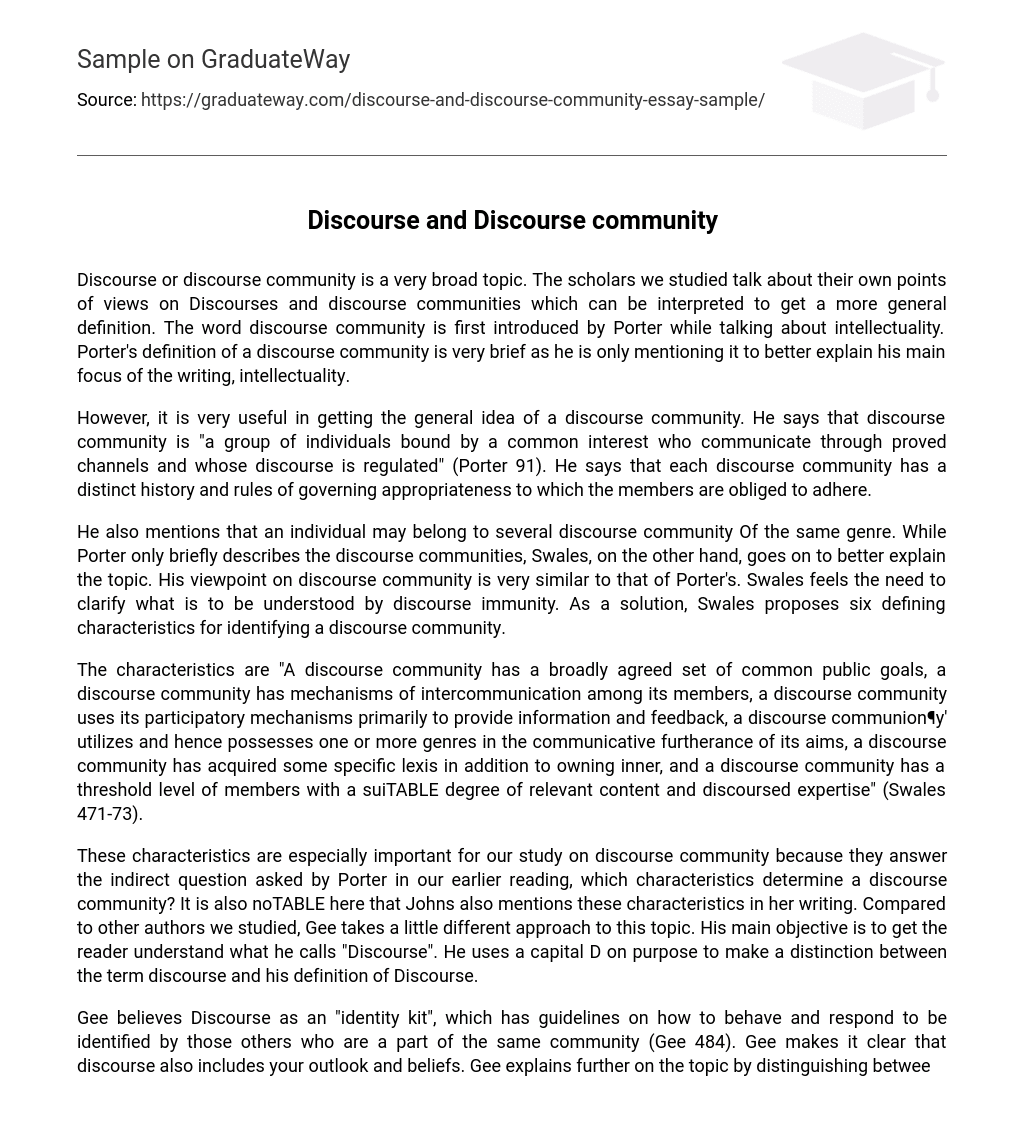Various scholars have explored the concept of discourse or discourse community, offering their own perspectives and contributing to a comprehensive understanding. One of the earliest mentions of “discourse community” can be found in Porter’s discussion on intellectuality. While Porter’s definition is concise, it serves to enhance his main focus on intellectuality.
According to Porter (91), understanding a discourse community can be beneficial in gaining an overall understanding of it. He defines a discourse community as a group of people with a shared interest who communicate through established channels and adhere to specific rules of appropriateness. Each discourse community has its own unique history and regulations that its members must follow.
Porter briefly mentions that one person can be a part of multiple discourse communities within the same genre. In contrast, Swales provides a more detailed explanation of discourse communities. He shares a similar perspective as Porter, but also aims to define the concept more clearly. Swales suggests six defining characteristics to identify a discourse community.
The defining aspects of a discourse community include shared goals, effective communication between members, the use of participatory mechanisms for information and feedback, the utilization of genres for communication purposes, the adoption of specific language and terminology, and a threshold number of members with relevant expertise (Swales 471-73).
These characteristics are crucial for our analysis of discourse community because they address Porter’s earlier question about the determining factors of a discourse community. It is worth noting that Johns also references these characteristics in her work. In comparison to the other authors we have studied, Gee approaches this subject slightly differently. His primary goal is to help the reader comprehend what he refers to as “Discourse”. He intentionally capitalizes the “D” to distinguish between the term discourse and his specific definition of Discourse.
Gee argues that Discourse functions as an “identity kit,” providing individuals with guidelines on appropriate behavior and responses in order to be recognized as part of a specific community (Gee 484). He emphasizes that Discourse encompasses not only one’s speech patterns but also their outlook and beliefs. To elaborate on this concept, Gee distinguishes between primary and secondary Discourses. Primary Discourses, such as those found within a family, shape an individual’s early development. On the other hand, secondary Discourses are acquired outside of the family context, for example through education, work, or participation in teams.
Involvement in secondary Discourses is often voluntary. This similarity of ideas can be observed in John’s work. While the previous authors we examined have diverse thoughts on Discourse and discourse community, Ann M Johns appears to incorporate many of their ideas to develop her own perspective. She incorporates Swales’ six defining characteristics of a discourse community in her writing. Like James Gee, she also differentiates between various types of discourse communities. She employs a chart to further categorize the different types of communities.
According to the writer, a family or household can be seen as a discourse community. When individuals are born, they are automatically included in this discourse community which consists of family members. It is worth mentioning that this concept aligns with Gee’s notion of primary Discourse but contradicts Swales’ belief that a discourse community has shared public objectives. Our research demonstrates that the subject of Discourse and discourse community is extensive and highly significant in our daily lives, as we participate in various discourse communities.
Interactions with various individuals, whether it be family, roommates, teammates, or colleagues, are all encompassed within discourse communities. Such communities can either be entered into effortlessly or by choice, potentially necessitating approval from existing members. These communities have a profound impact on your conduct and sense of self.





